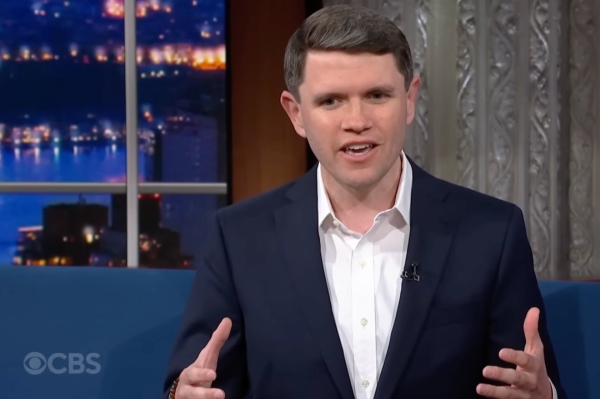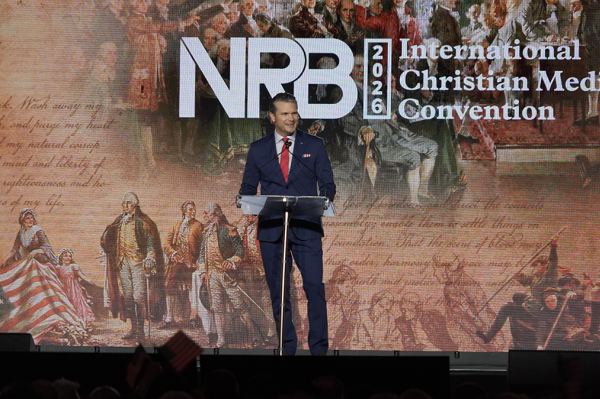How Should Christians Engage in Politics and Culture?
After three decades of increased political activism, some American evangelicals are reconsidering their proper role in politics and culture.
While some evangelicals have grown appalled by the increased political activism of their brethren and withdrawn from politics, others have become so deeply tied to partisan and national loyalties that their loyalty to Christ has become indistinguishable from their loyalty to political party and country.
Early 20th century theologian and politician Abraham Kuyper would be appalled by both of these reactions, according to Stephen Grabill.
Grabill is editor for the “Kuyper Translation Project” and serves as Acton Institute's director of programs and international. Kuyper’s work has gained a renewed interest but less than 10 percent of his work has been translated into English. The Acton Institute and Kuyper College are attempting to remedy that with the “Kuyper Translation Project.”
Observing the political landscape today, Grabill commented to The Christian Post, “Part of what we know that is going on out there is an effort for evangelicals to take their faith in the public square in a lot more sophisticated way than has happened in the past.”
Kuyper Translation Project is currently working on translating Kuyper's three-volume Common Grace. Wisdom & Wonder has already been published by Christian's Library Press as a “teaser text” for the whole project.
In the forward for Wisdom & Wonder, Gabe Lyons, founder of Q Ideas, and Jon Tyson, pastor of Trinity Grace Church, wrote that they were first exposed to the thought of Kuyper by reading Chuck Colson's How Now Shall We Live?
When Colson wrote, “Christians are called to redeem entire cultures, not just individuals,” “that single declaration changes everything,” Lyons and Tyson argue, because “it reveals a truth that many Christians have forgotten, that we as Christians have a role, indeed a responsibility, to be involved in renewing every realm of the world. Nothing is to be left untouched by the transformative power of the Gospel. This was the influence of Kuyper.”
There is an unmistakable narrative repeated throughout the Bible – creation, fall, redemption and restoration. Evangelicals mostly focus on two of those themes – fall, or sin, and redemption or often more narrowly, salvation.
Missing the other parts of the narrative, “often leaves us confused, questioning whether it is possible to see beauty and goodness in a world pervasively marred by sin. It causes us to miss out on much of the work God is up to in the world. When we do this, we reduce the scale of the work of God to withdrawing, waiting, and evacuating,” Lyons and Tyson wrote.
Grabill highlighted that “Kuyper's work on 'common grace’ is all about helping Christians connect with the broader cultural and creation project that God has for His people. There is a lot of intellectual and practical capacity that can be built up within the evangelical world through an exposure to Kuyper's work.”
Kuyper (1837-1920) was a pastor in the Dutch Reformed Church before he was elected to the Dutch parliament and, eventually, became prime minister.
Kuyper would say to those involved in politics, “Part of what I was battling for more than 40 years, as I got involved in politics in the Netherlands in my day was always trying to keep my main allegiance to Christ,” Grabill pointed out.
The late theologian recognized that applying Scripture to a specific public policy is “really difficult business.”
“There are places where Scripture speaks with clarity and decisiveness on points,” Grabill said, “but there is also lots of things that Scripture doesn't address that we have to draw principles from Scripture and theological tradition and make applications to the best of our ability. That's the rub and the edge in politics.”
Christians should engage politics and culture with humility, but Kuyper sometimes failed in that regard. Christians can also learn from Kuyper's failures, Grabill suggested, as well as when his loyalty to Christ came first.
Kuyper-like figures are rare in the United States today. Grabill believes that there are not many pastors that are willing to get involved in the political realm while also maintaining their pastoral identity. Going back in history though, William Jennings Bryan, a Democratic Party presidential candidate in the late 19th and early 20th centuries, and Martin Luther King, Jr. come to mind for Grabill as having a Kuyper-like legacy.
Volume I of Common Grace will be available in October, with Volume II following a year later, and Volume III in the Fall of 2014. After that, the Kuyper Translation Project plans to tackle the three volume Pro Rega (“for the King”), which will deal more with the role of the local Church and Christ's lordship over culture and society.





















